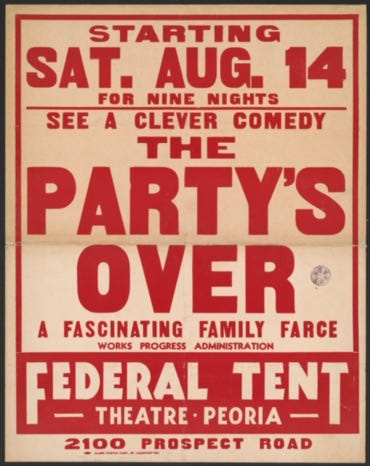“Radical” is always used incorrectly.
Radical does not mean “extreme,” as writers have employed it these last 50 years, mistaking its recent misuse for its ancient birth. Radical originates in the Latin, radix, radicis, meaning root or origin.
Of course, the natural sublimity of language encourages alteration and adaptation in word meaning over time for many reasons. In this case, the (mis)application of “radical” to Leftist ideation has been self-confirmatory and ironic. That is, the assumption was — and still is — that Leftist thought is so penetrating that its philosophers and their acolytes have convinced themselves that they had gotten to the root of the matter.
To the contrary, they landed their conclusions no further than their suppositional take-offs, a self-gainsaying in which disputation with oneself — the beating heart of philosophizing — short-circuited into a triumphant confirmation of whatever it was the “thinker” desired to prove, rather than to discover what was and what is, regardless of the hypothesis. For, otherwise, they would have had to prove themselves wrong.
The irony of this is that the “radical’s” anti-meaning, his generalized life-denying antitheticalism — not his “thought” — is, in fact, the actual root of his and all Leftist ideation.
Why do people commonly use radical to mean extreme?

Because a tree is securely rooted in the earth. It must be pulled out by its roots if its existence is to be successfully terminated.
Over the last 100 years, Leftists have given the world ample demonstrations of the intimate link between their ideational “getting down to the root” and their naked brutality: “direct action,” the addressing of physical violence against the subjects of their theoretical hatred; and, where, physical destruction is not possible, then in ideas.
This antitheticalism — touted personality trait in the “bad seed” of the 1950s and Gen Z “disruptor” alike — has brought about the wholesale evisceration of melody and lyricism in music since 1968, though disruptive tremblors could be felt as early as 1910. In some non-Western cultures, this regressive antitheticalism — always associated with an idea set promising utopia— has lead to the banning of some and even all music, even to the smashing of instruments — the removal from human life of sonic beauty. Over the last 50 years, Western Leftists, sensation seekers whose drugs and sexual practices seem to require it and so do not wish to ban it, have instead inundated ears with ugly, hyped, pulsating, repetitive but otherwise barely organized amelodic noise. People today misidentify most of the organized noise: Just as with the term “radical,” so with “music.” There is a bright spot: I see many young people who seem to be starving for something musically nutritious and turning to melody, if not to beauty. Perhaps the primally destructive urges of the Generation of ‘68 will die out with their passing.
For a century, people have been brutalized into misidentifying meaning. Beaten about the head so often and so loudly by the conceits of Leftist pseudo-intellectuals, they have swallowed their conclusions. Writers must bring them to the vomitorium; leeches applied to extract the poison; and fresh cooling drafts of ichor set in front of them to quaff.
No, the Leftists are not radical. They get to the root meaning of nothing. But they do want to dig the tree out by the roots and cast it aside, such is their contempt for the best humankind can offer one another.
But now, thank goodness…







Facts as opposed to cant. Bravissimo!